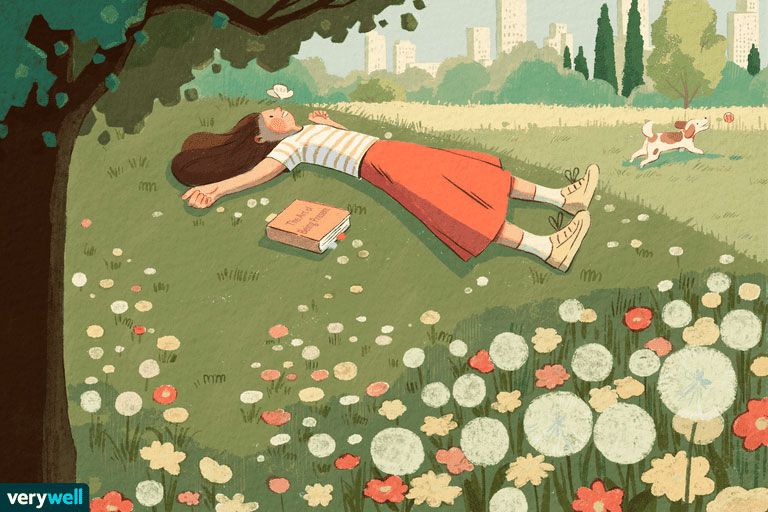Describe a photo that makes you feel happy
You should say:
When and where you took the photo
What the photo is like
How often you look at the photo
And explain why it makes you feel happy
Sample answer to describe a photo that makes you feel happy
One of the photos that brings me immense joy is a picture taken in my Japanese language class in Japan. This moment was captured 7 years ago when I had the incredible opportunity to study Japanese in Tokyo.
The photo itself is simple yet filled with warm memories. In the background is our teacher, a kind and patient native Japanese speaker, standing in front of a whiteboard filled with Japanese characters. In the foreground, my classmates and I gathered closely, engaged in a lively conversation in Japanese
I don’t look at this photo regularly, but it’s saved on my phone, and sometimes I come across it. Whenever I do, I can’t help but smile.
This photo makes me feel happy for several reasons. Firstly, it serves as a reminder of the incredible experience of studying a language in its home country, where I could fully immerse myself in Japanese culture. Additionally, it brings back memories of the time when I met many wonderful Japanese people who generously assisted me during my stay in a foreign land.
I will keep this picture as a cherished reminder of the amazing/ exceptional time I had during my Japanese language class in Japan.

Describe a photo that makes you feel happy
Xem thêm: Describe a difficult task that you completed at work
Part 3 – Describe a photo that makes you feel happy
Do you think people are taking too many photos these days?
In my view, the advent of smartphones and social media has indeed led to people taking an excessive number of photos. Nowadays, people can buy digital cameras or smartphones with high-quality cameras, often at more affordable prices than in the past. Therefore, it is easier for many to capture every moment and share it on social platforms.
Useful vocabulary:
- Advent: The arrival or creation of something new (in this context, smartphones and social media).
- Excessive: More than what is necessary, normal, or desirable; overly abundant.
- Digital cameras: Cameras that capture and store photographs in digital form.
- Smartphones: Mobile phones with advanced features, including camera capabilities.
- High-quality: Superior in standard or excellence.
- Affordable: Reasonably priced; not too expensive.
- Capture: To record or take a picture of something.
- Every moment: Refers to all significant and insignificant occasions and instances.
- Social platforms: Online platforms or websites where users can share content and interact socially.
- Easier: Less difficult or requiring less effort.
- Share: To make something known or available to others; in this context, posting on social media.
What kinds of photos do people like to take?
When it comes to photos, people’s preferences can really vary. Many people enjoy taking selfies to capture personal moments, often for sharing on social media. Then there’s travel photography. Many people take beautiful landscapes or cultural landmarks to share with others or to preserve as memories. Group photos are also popular, especially at events like weddings or family reunions to keep as a record of life’s milestones.
Useful vocabulary:
- Selfies: Self-taken photographs, often with a smartphone.
- Social media: Online platforms for sharing photos and experiences.
- Travel photography: Taking pictures of new places, landscapes, or cultural sights.
- Group photos: Pictures with multiple people, often during events.
Do you think people take more photos now than in the past?
Yes, I definitely believe that people take more photos now than in the past. The primary reason is the advent of smartphones with built-in cameras, making photography accessible and instantaneous. In the past, photography required a dedicated camera and film, which limited the frequency and spontaneity of taking pictures. Nowadays, the ease of clicking and sharing photos on social media platforms has significantly increased the volume of photos people take daily.
Useful vocabulary
- Advent: The arrival of a notable person, thing, or event.
- Smartphones: Advanced mobile phones with a wide range of capabilities, including photography.
- Built-in cameras: Cameras that are integrated into devices like smartphones.
- Accessible: Easy to obtain or use.
- Instantaneous: Occurring or done instantly.
- Dedicated camera: A specialized device used exclusively for photography.
- Frequency: The rate at which something occurs or is repeated.
- Spontaneity: The condition of being spontaneous; impulsive action.
Do you think equipment is important for photography?
Well, in my opinion, while equipment does play a pivotal role in photography, it’s not the be-all and end-all. You see, high-end gear like professional cameras can offer unparalleled quality and versatility, which is crucial for professional photography. But, it’s also about the photographer’s skill, their eye for composition, and ability to capture the essence of a moment.
Useful vocabulary
- Pivotal: Extremely important or crucial in a particular situation or in the development of something.
- Be-all and end-all: The most important thing; the ultimate goal or purpose.
- High-end gear: Refers to equipment that is of high quality, often with advanced features.
- Professional cameras: Cameras that are designed for professional use, with higher quality and more features than standard cameras.
- Unparalleled quality: Having no equal; better or greater than any other.
- Versatility: The ability to adapt or be adapted to many different functions or activities.
- Photographer’s skill: The ability or expertise of the photographer.
- Eye for composition: The photographer’s ability to see and arrange elements in a photograph in a pleasing or effective way.
- Capture the essence: To represent the most important or central part of something in a photograph.
Do you think being a professional photographer is a good job? Why?
Being a professional photographer can be a highly rewarding career for those who are passionate about capturing images and have the skill to do so effectively. It allows for creative expression and offers the opportunity to work in various environments, from studios to outdoor locations. Photographers can specialize in numerous fields, such as fashion, sports, journalism, or events, which can be very fulfilling. Additionally, with the rise of digital media, there are more platforms than ever to showcase one’s work.
- Rewarding – mang lại sự hài lòng (offering satisfaction or joy)
- Passionate – đam mê (having or showing strong feelings of enthusiasm)
- Creative expression – biểu đạt sáng tạo (the ability to express thoughts and feelings in unique and imaginative ways)
- Specialize – chuyên môn hóa (to focus on a particular subject or activity)
- Fulfilling – làm thỏa mãn (making someone satisfied or happy because of fully developing their character or abilities)
- Continual learning – học tập không ngừng (the process of constantly acquiring new knowledge)
- Adaptation – sự thích nghi (the process of changing to fit some purpose or situation)
- Satisfying – làm thỏa mãn (giving fulfillment or the pleasure associated with this)
- Respected – được tôn trọng (admired by many people for your qualities or achievements)
Why do some people like to post their photos on social media?
Some people enjoy posting their photos on social media for various reasons. One of the primary motivations is the desire for connection and social interaction; sharing photos can help maintain relationships and provide a platform for communication. Additionally, individuals often seek validation and positive reinforcement through likes and comments, which can boost self-esteem. Social media also serves as a digital album, allowing people to chronicle their lives and share their experiences with a wider audience. For some, it’s about self-expression and identity, using photographs as a means to convey personal style, interests, and viewpoints.
- Connection – kết nối (a relationship in which a person or thing is linked or associated with something else)
- Validation – sự xác nhận (recognition or affirmation that a person or their feelings or opinions are valid or worthwhile)
- Reinforcement – sự củng cố (the process of strengthening one’s understanding, often through positive feedback)
- Self-esteem – lòng tự trọng (confidence in one’s own worth or abilities; self-respect)
- Chronicle – biên niên sử (a factual written account of important or historical events in the order of their occurrence)
- Self-expression – tự biểu đạt (the expression of one’s feelings, thoughts, or ideas)
- Identity – bản sắc (the fact of being who or what a person or thing is)
- Networking – xây dựng mối quan hệ (interacting with others to exchange information and develop professional or social contacts)
- Visibility – sự nhìn thấy (the state of being able to see or be seen)
Xem thêm: Mindset for ielts 2


